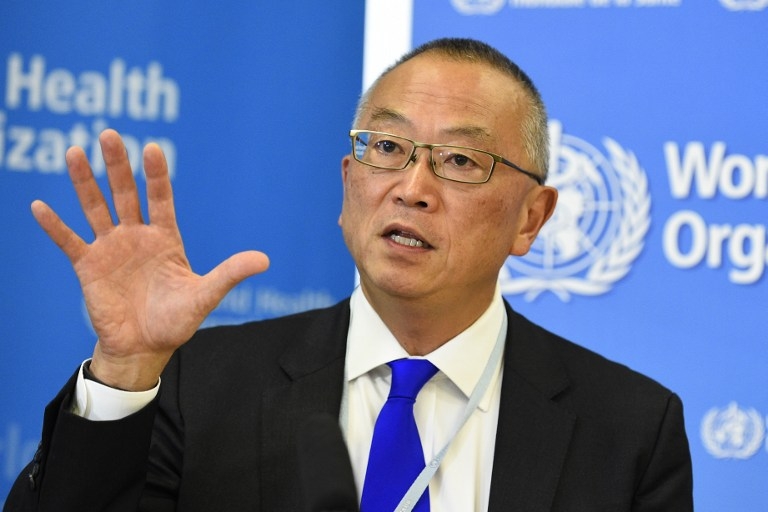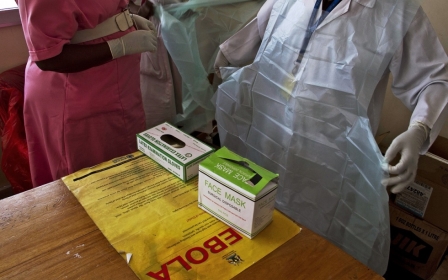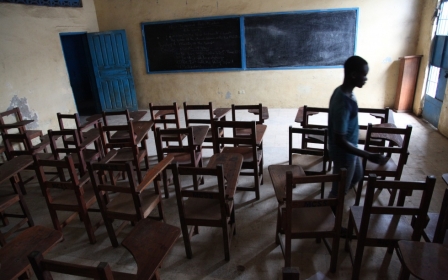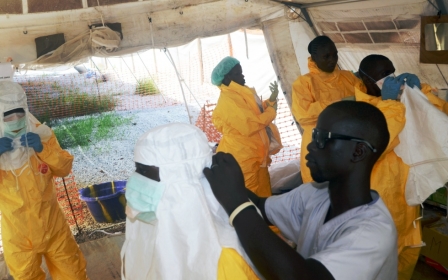Mauritania bans entry of citizens from Ebola-hit states

Mauritanian authorities on Sunday decided to deny entry to citizens from African countries hit by Ebola to prevent the spread of the deadly virus.
In a statement, the Health Ministry said the decision applies to the citizens of Liberia and Seirra Leone.
Mauritania stepped up health checks at its border with Senegal and Mali, a Mauritanian health ministry official said, but so far no suspicious cases had been detected.
Ebola is a contagious disease for which there is no known treatment or cure.
The virus can be transmitted to humans from wild animals and also spreads through contact with the body fluids of an infected person or someone who has died of the disease.
The Word Health Organisation (WHO) has declared the Ebola outbreak in West Africa to be an "international public health emergency" as the virus continues to spread through the region. The UN health agency stopped short of calling for global travel restrictions, but several African countries on Saturday began imposing bans.
Zambia announced that it was denying entry to citizens from countries hit by the virus, while Chad suspended all flights from Nigeria. Countries as far afield as India are scrambling to impose measures to prevent contagion.
The virus has killed hundreds of people in West Africa, mostly in Guinea, Liberia and Sierra Leone.
Nigeria has confirmed two Ebola fatalities, including a visiting Liberian man.
Benin has also reported two Ebola fatalities, including a man returning from the Nigerian city of Lagos.
Search for new drug
Spread by close contact with an infected person through bodily fluids such as sweat, blood and tissue, Ebola causes fever and, in the worst cases, unstoppable bleeding.
As African nations struggled with the scale of the epidemic, the scientists who discovered the virus in 1976 have called for an experimental drug being used on two infected Americans to be made available to Africans.
The two Americans, who worked for aid agencies in Liberia before returning to the United States for treatment, have shown signs of improvement since being given ZMapp, made by US company Mapp Pharmaceuticals.
There is no proven treatment or cure for Ebola and the use of the experimental drug has sparked an ethical debate.
The WHO, which is planning a special meeting next week to discuss the issue, said on Saturday that clinical trials of a preventative vaccine by British pharma giant GlaxoSmithKline may begin next month, and it could be available by 2015.
Separately, Marie-Paule Kieny, assistant director-general of the UN health agency, told AFP it was "realistic" to expect a vaccine to be ready by 2015.
The WHO, Kieny said, was "engaging with quite a number of developers ... to see what we can do to help accelerate and facilitate the development".
Nigeria along with Guinea, Sierra Leone and Liberia are the hardest hit countries by the epidemic, which the WHO has called the worst in four decades.
Middle East Eye propose une couverture et une analyse indépendantes et incomparables du Moyen-Orient, de l’Afrique du Nord et d’autres régions du monde. Pour en savoir plus sur la reprise de ce contenu et les frais qui s’appliquent, veuillez remplir ce formulaire [en anglais]. Pour en savoir plus sur MEE, cliquez ici [en anglais].




